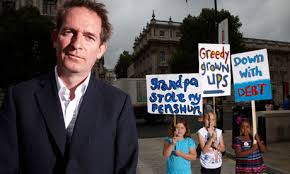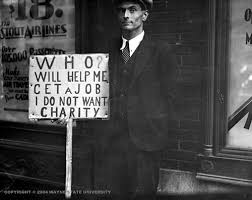
Tuesday, 30 November 2010
I Hate Bloody Snow

Friday, 26 November 2010
The Daily Express Get Britain Out Of the EU Crusade.

 The Daily Express has gone where the Sun and Mail have yet to tread, and openly called for Britain to leave the E.U completely in one of its daft "crusades" that it comes out with. I'd imagine this "crusade" was cooked up by Dirty Des and Nigel Farage over a pint somewhere. Desmond probably reckoned an anti - Europe theme would appeal to the readership, though how long this crusade lasts will remain to be seen. These things in the Express tend to last as long as the jaded people writing it can be bothered to keep them going. Though it seems that the Express is pretty keen on this one, so keen that they even made up a fake statistic for the front page (The Eurosceptic Dan Hannon says the figure is roughly 55% want out, which sounds much more accurate.) Whether this is the start of the deliberate demise of a paper with declining readers, that is sent out to die vocally, becoming a single issue lobbying piece for it's proprietor is any ones guess. The paper interviewed a few random members of the public about whether they agreed with the Expresses stance (though it is not that clear how they came to the 99% figure), the responses given showed that those interviewed knew as much about the EU as I know about the TV show Ugly Betty (AKA fuck all), which is a bit worrying if ever the call for a referendum ever came up. Everyone seems to have strong opinions about it but do they really know all that much about it? I have to wonder whether there is a strong vein of practical opposition to the EU or is there a strong seam of possible xenophobia in the UK towards the continent. Not the best basis to oppose it. I would be genuinely interested to see how the Express readers would rate their reasons for wanting to leave the EU (of course the ones who do take that view.) in order of what they were most hacked off about. A list of stuff like:
The Daily Express has gone where the Sun and Mail have yet to tread, and openly called for Britain to leave the E.U completely in one of its daft "crusades" that it comes out with. I'd imagine this "crusade" was cooked up by Dirty Des and Nigel Farage over a pint somewhere. Desmond probably reckoned an anti - Europe theme would appeal to the readership, though how long this crusade lasts will remain to be seen. These things in the Express tend to last as long as the jaded people writing it can be bothered to keep them going. Though it seems that the Express is pretty keen on this one, so keen that they even made up a fake statistic for the front page (The Eurosceptic Dan Hannon says the figure is roughly 55% want out, which sounds much more accurate.) Whether this is the start of the deliberate demise of a paper with declining readers, that is sent out to die vocally, becoming a single issue lobbying piece for it's proprietor is any ones guess. The paper interviewed a few random members of the public about whether they agreed with the Expresses stance (though it is not that clear how they came to the 99% figure), the responses given showed that those interviewed knew as much about the EU as I know about the TV show Ugly Betty (AKA fuck all), which is a bit worrying if ever the call for a referendum ever came up. Everyone seems to have strong opinions about it but do they really know all that much about it? I have to wonder whether there is a strong vein of practical opposition to the EU or is there a strong seam of possible xenophobia in the UK towards the continent. Not the best basis to oppose it. I would be genuinely interested to see how the Express readers would rate their reasons for wanting to leave the EU (of course the ones who do take that view.) in order of what they were most hacked off about. A list of stuff like:1. THEY'D RATHER WE WERE IN NAFTA
2. THE EUROPE OF COMPETING, EXCLUSIVE NATION STATES LEADS TO BETTER AND MORE PRACTICAL GOVERNANCE.
3. THE E.U IS TOO PROTECTIONIST, TOO SOCIALLY DEMOCRATIC, AND TOO INTRUSIVE ON NATIONAL SOVEREIGNTY.
4. THE C.A.P IS THE STUPIDEST POLICY EVER INVENTED BY A HUMAN BEING.
5. HERMAN VAN ROMPOY LOOKS A BIT WEIRD.
6. I'M INCREDIBLY NOSTALGIC FOR A TIME WHEN YOU COULD BUY ELECTRICAL GOODS WITHOUT A PLUG FITTED.
7. THESE PEOPLE MADE WELSH AN OFFICIAL LANGUAGE OF THE E.U. WHAT'S ALL THAT ABOUT?
8. BENDY BANANAS. NUFF SAID
9. I DON'T LIKE FOREIGNERS STICKING THEIR NOSE IN JOHN BULLS AMPLE GIRTH.
10. THE E.U INVENTED YOOMAN RIGHTS. POLITICAL CORRECTNESS, DO-GOODERY AND LESBIAN GYPSY OUTREACH WORKERS, OR AT LEAST THAT'S WHAT BARRY DOWN THE PUB SAYS.
11. IT HAS FRENCH AND GERMANS IN IT.
My own hunch is that the ones at the bottom of the list will be the top of many a Express readers concern list. My own response to whether Britain's membership of the EU is a good thing or a bad thing is -depends on who you are. It really only affects people like me indirectly. If I was a big ultra free market proponent then I'd probably not like it too much. The other main anti-EU argument about the sovereignty issue, is a little exaggerated. I mean some of the talk about how the EU is trying to take over Britain when we have one of the largest and most powerful economies, and the largest military force of all the members, I'd like to see how they could seriously threaten us as much as some say. I'm sorry to say that a lot of anti EU sentiment seems largely down to a lot of Little England insularity, a purely emotional reaction that is not based on any practical objections. To quote Johann Hari:
Or they would complain that large parts of Britain's sovereign army - including its nuclear weapons - cannot be used without American authorisation. Or that large parts of our incredibly powerful media are accountable to foreign billionaires who shamelessly use their newspapers to pursue their own business interests rather than Britain's (or - wild idea! - a human rights agenda).
In fact, the totally independent nation state - which is so selectively fetishised by Eurosceptics - was always a myth. Nation states deal with the world as they find it, with all sorts of messy bargains and ad- hoc pooling of sovereignty."
I think that really sums it up very well. Pulling out of Europe - and I think a referendum could be easily possible, Cameron will have to face his Eurosceptic MP's one day, who knows after the Lib Dems are out of the scene next election? - is a BIG deal and not to be taken lightly. The case has to be put before us all, rational arguments for or against (I personally think there's more in the for camp. But since they can be never be bothered to do this, the anti camp will lead the debate, and do so.). If you only dislike the EU cause Britain ruled the waves once, and we hate the French etc.. Buy yourself a poster of a big bussomed girl in a Union Jack bikini to masturbate furiously to, because it may be a bit too late if we slam the door on the continent and perhaps retrospectively wish we hadn't been so hasty to do so, a few years down the line.
Tuesday, 23 November 2010
Does Littlejohn Think Homosexuality and Paedaphillia are Interchangeable
"We didn’t even know what homosexuality was, even though we’d been warned to steer clear of that chap who was always hanging round the swimming pool."
Hmmm that sort of sounds like an implication that being a gay man means that you have an unhealthy interest in young boys. So it's not too surprising people may be a bit sceptical at the sincerity of comments from Littlejohn such as this:
"Though homosexuality wasn't exactly my idea of a night out, I thought it outrageous that gays were subjected to discrimination in areas such as employment, housing and pensions.
I've always argued in favour of civil partnerships."
He couldn't possibly be making that up.
Review. "Martin Durkin. Britains Trillion Pound Horror Story"

Durkins film purports to be about the dire state of the nations finances. It seems that not even accounting for the banking crisis -it is a sorry story indeed. We are 4.8 trillion pounds in debt, which translates to £77'000 per person, or a stack of 50 pound notes 6561 miles high! Although he does say that the official figure is much lower, at 1 trillion. The extra amount is calculated by taking into account other factors such as future public pension liabilities, which does beg the question of how do you class future entitlements as the total public debt, before the people they are meant for have even claimed them? I had further questions about his economic analysis. In one scene he describes the debt by using a metaphor of a bath left running, with George Osbourne's cuts as using an egg cup to try to drain the water. He also highlights the risks of governments trying to print their way out of the debt by increasing the circulation of bank notes, which increases inflation, and in the extreme cases can cause what Geoffrey Howe calls "death of currency" as what happened in 20's Germany, and could be exacerbated by the creditors raising interest rates. Durkin seems to see the economy of a country as like a persons bank balance, an essentially fairly closed system. He never mentions who we are in debt to. Who is in debt to us? What is coming into the country? Would it be even in our creditors interest to see us go under? (see what's happening in Ireland) Economies are a much more open system. I'm not saying that the debt is not trouble (it is certainly to be worried about.), Durkin is just not explaining the bigger picture.
Durkin now tries to state his theory on why this debt came about. He claims that it is down to successive governments bankrolling an expanded client state. He claims that the private manufacturing sector are the only true wealth creators, and they are overshadowed by a large public sector who are economically parasitic (and as Durkin implies many times, largely a bunch of overpaid wasters who can't hack "real" work.) and funded by a government who can only raise taxes and borrow money to fund them. The large service sector has little to offer, as they can't export much. Thus our wealth creators are losing out to the debt creators, and that is why we are in this situation. I don't want to expand on the minutia of this argument as there are thousands of economic essays which explain this sort of thing a zillion times better than I could, but this does highlight Durkins straw man approach. Public workers can create wealth by proxy for instance. Say a doctor heals an entrepreneur, or a fireman saves a burning shop, or police confiscate dodgy goods. Again economics is not that much of a closed system. This is sort of the limits of the economic discussion on how the debt arose. From this point on the polemic mutates to the real point it wants to make.
In some ways this documentary is structured like Michael Moore's "Fahrenheit 9/11". The title being a bit of a smokescreen to create the launchpad to allow the creator to turn it into a personal pet crusade. In Moores case it was the Iraq war, Durkins is to promote his rigorous deregulated free market "all tax is theft" economy philosophy. That is why all his "Taxpayers Alliance" and "Adam Smith Institute "friends" get so much airtime in the documentary. The crux of his argument focuses on two locations, Durkins native North East and Hong Kong. So let's look at what he says about the former location first.
Durkin highlights the fact that the North East has high levels of people working in the public sector (around 60%, up to 77% in parts of Wales) and has a declined industrial base. Durkin and his buddy from the Taxpayers Alliance or whoever wax lyrical about how the North East had a strong industrial and manufacturing base in the late 19th to early 20th century, when the state made up about 10 percent of the workforce, and how this raised prosperity in the UK. They conveniently don't mention the great poverty that existed as the flip side of all this, and the protectionism the British Empire employed (2), minor omissions like that. They bemoan that the manufacturing base moved elsewhere where it became more profitable, after the two world wars and the increase of the state, and this is one of the problems of their uber free market philosophy -it looks great on paper, but we are not just an unthinking economic experiment, but a living human society. There is no doubt that this kind of economy can generate wealth, but it brings a host of other problems. Those shipyards shut down because it was cheaper to "outsource" their services overseas, where they could pay less emancipated foreign workers peanuts, and get away with cutting corners in the less democratic nations, compared to the relatively well paid and unionised British workers and it's democratic rules. Likewise Britain of the 19th century didn't have to bother (though much private charity did happen) as much about workers shitty pay and conditions as they had much less electoral say back then. It is inherently unstable. The unfettered free market takes advantage of an unliberated workforce (is it unsurprising that monetarism was first tried out in the Chilean police state of the 70's) - society gets richer and they demand more voice - they get more say and higher wages and representation - companies move elsewhere to undercut them with a new unliberated workforce -repeat the cycle. In short the increase in public sector jobs and service sector ones is a response to the loss of the industrial ones, there was simply nothing else to put in their place. A democratic society cannot just let swathes of its people being left without any real access to jobs. I'm not saying this is a perfect solution, but it is hard to see what would be an alternative. Textbook example of how a means to an end becomes the end in itself, and with that lets travel to the far east, to Hong Kong.
Durkin thinks we should be more like Hong Kong, with it's shiny skyscrapers (3) and it's free market economy, apparently considered the most free market of all. He again forgets to mention that HK has one of the highest gaps between rich and poor in the developed world, that the health service and the neat looking transport services are publicly funded monopolies (which he said were the road to shitdom in the UK), and that outsourcing to China is begging to happen. That Hong Kong - unlike the UK is a small city state, as we have seen the spreading of wealth in an ultra free market economy doesn't always travel everywhere, you can only do business in Hong Kong, in Hong Kong. And this is the root of the flaw (IMO) in Durkins and his Adam Smith institute friends argument. They see the totally unregulated free market as almost a magical force of nature that will always work wonders by virtue of what it is. In short it has become an article of faith for them. The invisible hand exists to these people, as a kind of fiscal version of the force on Star Wars. It binds us surrounds us, and can make you a shitful of dosh if you just grab it. In reality it is just an economic system, one of many. It can generate wealth obviously, but so did the command economies of the USSR in the twenties. They become unstuck when they become the end in itself, economics is ephemeral, things change to affect them, sticking doggedly to a system without reacting to whats going on around will eventually land you in trouble.
I don't want to say much more about the documentary, or delve further into economics. Quite simply there are shed loads of people who have forgotten more than I know about this type of thing, and are well worth reading for a more in depth account. But there was one comment on the documentary I thought that was telling "Taxation is theft", that sounds more a philosophical statement than an objective one. And in the end I feel that about Durkins theory, it owes more to ideology than a practical way to solve a financial problem.
(1) This is a nice little summary of the Economics of Hong Kong, and some of the problems of the economic system Durkin espouses.
(2) This essay has an interesting account of the way the Empire operated its economy around the time.
(3) We can take a tour of Hong Kong without going there courtesy of Google maps Street View. Hong Kong is on there. See firsthand if Durkin is being overly generous or not.
Monday, 22 November 2010
Bashing the Bishop Pete of Willesdon

Friday, 19 November 2010
They're (Not) Banning Christmas. Part 1

Tuesday, 16 November 2010
Comments on SFDebris "Prime Directive / Dear Doctor" Videos

SFDebris; or Chuck Sonnonberg is the Ebert and Siskel of Youtube Star Trek reviews. His insights to the series and his witty critiques of the various shows are really second to none. That odd looking lad blubbing about Britney Spears this ain't. Watch his videos now, get your friends to watch them, get your family to watch them as well, even your pets. Even if you haven't seen Star Trek watch them! They may not mean much in that context but hey. Now back to the crux of this post. SFDebris nails on the head exactly how a well intentioned and well known key philosophy of Star Trek lore went from a sound philosophical reaction to the mistakes made in our world to a hideous parody of its original self that ended up on occasions matching and suppressing the evil it was supposed to combat. That is the Prime Directive, Star Treks Federations non-interference directive. I want to see how this code that was supposed to portray an enlightened attempt to alleviate suffering actually resulted in suffering from inaction on several occasions by analysing SFDebris videos and commentary with some of my own thrown in. Intrigued? - well read on.
Anyone familiar with Chucks work will know that the Enterprise episode "Dear Doctor" is one of his most well known written reviews, and was one of the most requested Youtube reviews. Everyone has their "Yikes" moment with a Prime Directive story (well especially in the later ones) when the directive was taken to such extremes you just had to question the face value assumptions of the infallible "rightness" of the PD. I crossed the Rubicon with the TNG episode "Homeward" where some made up science caused a planet to lose it's atmosphere thus killing the pre -industrial population, (don't worry some get rescued) which under the PD would have to happen lest their culture be contaminated. Now you might have thought that these guys may have had bigger fish to fry, than someone dicking about with their culture, when - oh- THEIR FUCKING PLANETS ATMOSPHERE HAS VANISHED INTO THIN AI...., I MEAN; SPACE!" That's a level of philosophical devotion I find hard to relate to (to put it mildly). However in SFDebris case he highlights the ENT episode "Dear Doctor" as a prime example of all that went wrong with the application of the PD.In summary "Dear Doctor" is about a bunch of pre -warp aliens called the Valakians who are dying of a genetic disease. The Enterprise crew discover a second sentient species on the planet called the Menk, they are less intelligent and are not afflicted. The ships doctor, Phlox discovers firstly that the genetic disease will render the Valakians extinct in 200 years, and in addition the Menk are on the verge of an evolutionary leap in intellectual growth.* Saving the Valakians (who are on an evolutionary path to extinction) may disrupt this leap. In the end Captain Archer and Phlox withhold the cure so nature can take its cause. Chuck objects to this episode on two fronts, the first being that for all Phlox and Archer protest about not playing god, they are doing just that! Withholding a vaccine to a people who are destined to die in some evolutionary grand plan anyway, and secondly that the episode treats evolution as something with a grand conscious plan for us all, and not just a blind process by which natural environmental processes alter gene frequencies. Let us be clear about this, Phlox has all but signed the Valakians death warrant on the basis of raw speculation about how things may turn out, and by applying pseudoscientific theories of evolutionary predestination into the bargain also! Sorry Valakians you are the weakest link. Goodbyeeee!
Like SFDebris I agree that the P D is in principle a good idea. As he said it probably arose from a mix of revulsion to the extremes of the Truman doctrine, when even the most vile of tinpot barbarians could get a load of cash and weapons if they got themselves called "anti - communist" , and how the conquest of the American continent was carried out. There are many instances where something like the PD would be both moral and enlightened a thing for explorers to heed. A non interference directive. Not unnecessarily dicking about with less advanced cultures, interfering in wars that don't concern them, not giving less advanced peoples technology they can't handle. These are sensible rules that both benefit explorer and explored. The problem with the application of the PD, which snowballed towards the VOY/ENT end of the franchise, was that it mutated from an enlightened philosophy grounded in pragmatism to theological dogma, and from that evil flows.
The latter examples of the PD gone awry are a textbook example of sensible rules being corrupted by rigidity and dogma. Like Chuck says, the PD must be enforced no matter what, no mitigating circumstances. The PD is good and just, because it is the PD, general order one! No involvement that [they] might cause harm, in any circumstances at all! This kind of mentality is why religious dogmas can be so harmful, when you apply absolutist rules to an arbitrary world. To quote SFDebris:
"this kind of thinking assumes that the Prime Directive was a divine being or something, that it has a plan, and who are mere mortals like Janeway and Paris to question it? It is, in fact, merely a rule created by human beings. Not to say that it isn't an important rule, since there is much justification for it (such as preventing exploitation of undeveloped systems). But that doesn't make it an absolute, that there's never a reason to ignore it."
We see this mentality in some religious dogmas today. I'll highlight one of them as an example. The refusal by Jehovah's Witnesses to give blood. In antiquity this aversion to "misuse" of blood was likely based on a misunderstanding of what blood was on the part of people who had no knowledge of advanced biology. Think of all the purity and hereditory metaphors associated with blood. They must have seen blood as some magic life giving fluid that when spilt from the body (a lot of violent death back then) is responsible for supping the god given life energy and death.This is wholly inaccurate but we can give them the benefit of the doubt. It was seen as wise back then not to handle blood willy nilly. However society has changed since then and this view of bloods properties is pretty inaccurate, however still JW's ignore this and insist on denying the effectiveness of blood transfusions, and worse still may allow someone to actually die than have a transfusion. This is when a law written by man is taken to such ludicrous extremes that an absolutist law is upheld even to the extent that it is based on an obsolete understanding that bares no resemblance to reality -just because it is a law, that is always virtuous, because by virtue it always is!
The second failing of the PD is summed up as:
"The biggest excuse, and the one Janeway trots out here, is that you don't know what the consequences would be. You could make things worse. Granted, going in and stopping a war could be a really sticky problem, but using this as a justification for allowing millions or billions to be incinerated alive? With that kind of logic, you should never get involved in anything. If a person is trapped under a piece of fallen masonry in an alley and calls for help, ignore them. After all, if you save them they could go on to marry and have children, and one of those children could wind up growing up and joining a group of whack-jobs and helps them plant a nuclear warhead in a major city, killing tens of millions of people. Or maybe they'll just live a long and happy life. You don't know, but under the reasoning of the Prime Directive disciples, it's better not to take that chance"
To take another real life analogy. If the Haiti earthquake had happened in the Star Trek universe and if we took the PD to the standards applied above, then there would have been no relief effort at all on the part of Starfleet. I mean what happens if this was a turning point in history? What if the poor people of Haiti, standing in the smoke and rubble of their homeland, are spurned on by adversity and the fact that an earthquake devastated them - to transform their island into a industrial powerhouse, then a global empire, then a natural disaster stopping galactic federation rapid response squad? Lest anyone anywhere ever suffers from geological disasters. Thus by helping them their destiny is screwed. In reality of course we know no-one seriously would take that point of view. How do you know any of that will happen? That is sheer speculation. Like Chuck says we would be paralysed be fear to do anything at all if we took the attitude above. We are humans who can only see the here and now, we don't have the prescience to take the stance above, and to think otherwise would be the height of hubris as Riker says. We have to be motivated by compassion and pragmatism and in reaction to current events, what else can we go by?
Chucks videos show how the PD became more zealously applied as the franchise progressed. As we see; both Kirk and Spock agree that telling the Yonadas they live on a fake looking asteroid is a lesser evil than letting them all be wiped out. Spock says it is logical to do so. It was certainly the moral thing to do. The Yonadas are a sentient people with hopes and dreams, and are irreplaceable if they are rendered extinct, being told they live on an asteroid may be upsetting, but it's better than being dead. Likewise when the original crew warned the (ostensibly) primitive Organians about the dangers of Klingon occupation, and how the Feds would help them to develop their society by providing schools and improved farming techniques, in exchange for joining an anti-Klingon alliance. It could be argued that this was chauvinistic and patronising, but it was [from their point and ours] preferable to slavery and brutal occupation under Klingon rule. Society is ephemeral and situations can change and this reflected that. Things are already going downhill when Picard and his crew have that hideous straw man argument about saving the doomed society, Riker's "height of hubris" comment is comically circular reasoning. Then we get Janeway and Archer taking the PD to its fundamentalist, absolutist conclusion. The logical end point of a law being so rigidly applied, it actually causes more harm than what it was set up to prevent. Man cannot (IMHO) proclaim to have an insight on this destiny / nature / the greater scheme of things / the cosmic plan - circle the appropriate one, indeed I'm personally doubtful there is any great plan at all (but that's just me and another topic entirely). In fact I do wonder did someone like Stalin think that "greater destiny" called for the Kulaks to disappear when he was lying awake in bed at night?
It's actually kind of ironic that such a rigorous interpretation of the Prime Directive actually goes against the spirit of exploration in Trek. If your going to seek out new civilisations on a manned ship you are going to have to interact with them at some point. I would have thought Starfleet would have taken a similar view to this as the puritanical Lady Whiteadder in Blackadder II did to parties. "Where there are people, there are people to fornicate with!" What about colonising or exploring planets? A disrupted bit of bacteria could be a civilisation in the making that has been snuffed out. If your going to take this kind of rigorous attitude, I'd really stay at home and hide!
We never learned what happened to the Valakians. I don't know if Chuck is right and they became the Breen, and the Menk the Pakleds. But I do remember Tacitus (well obviously not personally remember!) commenting on so called "civilised" people not putting their money where their mouth was, when he proclaimed that the Romans made a desert and called it peace. I wonder if a philosopher from those last remaining Valakians thought similar of Starfleet. "They let us go extinct and called it high mindedness"
Monday, 15 November 2010
And Now For Something Completely Differentish
I did mention when Northernbloke kicked off in February, that there would be reviews and similar kinds of stuff alongside the Mail bashing, but I feel this bit is neglected somewhat. I won't say it is because of any circumstances out of my control, more a case of I just forgot, or more likely I was just too lazy to be arsed writing the bloody things in the first place. But as I've been catching up on 4oD on youtube (that explains a dearth of posts) I have a few things I'd like to put up in response to the documentaries I've watched. It's like a break from having to root around the Internet to debunk a Littlejohn story about how a traffic warden bazookad a puppy with a RPG for walking over a double yellow line, the kind of stuff even Smiffy of the Bash Street Kids could instantly detect as 24 carat bullshit. So hopefully the line up should be:
1. Review of Martin Durkins "Britain's Trillion Pound Horror Story"
2. Response to a youtube video about the morality of the Prime Directive on Star Trek. (hopefully not as geeky as it sounds.)
3. Review of Ben Steins "Expelled"
And the to do list involves:
1. Reviews of really bad Star Trek episodes.
2. (Possible) Review of Niall Fergusons "War of the World.", not entirely given this the green light.
How exciting.
Wednesday, 10 November 2010
Do Some Conservatives Secretly Admire the Chinese Dictatorship?

Monday, 8 November 2010
Melanie Phillips Knows Even Less About Unemployment than the MMR Vaccine.

They don't literally mean there are NO jobs at all! Anywhere! There are few jobs to go round relative to the levels of unemployed, that's why people are struggling to find something. As for her second point, if the work corresponds with the opening hours of the job centre, anyone without access to their own computer (which means a lot of unemployed people who tend to be skinter than the whole) will find it difficult to look for something.
"Well, which is it? If there aren’t any jobs, what’s the point of looking for them?"
You know Mel, credit where credits due. I thought you were just a slightly barmy right winger, but I now realise you are in fact the worlds greatest satirical genius. I mean no one could intentionally be this moronic and not just secretly taking the piss, undermining the values you claim to espouse.
"IDS is, indeed, the one person against whom that particular smear of ‘heartlessness’ cannot be made to stick. The patent decency of the man is plain for all to see. He is motivated by the highest possible concerns to rescue the poor"
That's her opinion I suppose. IDS' "compassion" always strikes me a bit like the heavy handed patrician attitude to the poor in Victorian times, a compassion that can disappear if you don't accept it on their terms. Not helpful.
Mel now starts changing tack, pulling out straw men to show how it's the left who actually hate poor people.
"under the guise of ‘compassion’, the Left traps people in permanent poverty through treating them as less than human."
???????????????????????????????????????????????????????????????
"For what drives ‘progressives’ absolutely wild is the moral concern at the heart of the IDS project — to encourage the poor to take some responsibility for themselves and for others. But it is an article of faith on the Left that the poor are helpless tools of circumstance; and so it is outrageous to expect them to behave as anything other than victims, who accordingly can only ever take rather than give."
This kind of sentiment is what worries me so much about this kind of stuff. Mel and IDS don't seem to grasp the fact that - let me spell it out for those at the back -
"PEOPLE DON'T ALWAYS CHOOSE TO BE UNEMPLOYED AS A LIFESTYLE CHOICE"
They don't seem to tumble to the possibility that people can be poor and unemployed because of arbitrary factors like pure bad luck. Their attitude seems to be "anyone who is unemployed is too lazy and idle to get a job." Mel is guilty of the things she accuses her opponents of. She can't see them as victims in any circumstances! She can't see them ever giving, only taking! If this punitive philosophy is espoused by the guy tasked with sorting unemployment. Yeah people are going to worry!
"This is tantamount to saying that the poor are a breed apart — incapable of displaying the same human dignity as the rest of society."
said someone who said this:
"to encourage the poor to take some responsibility for themselves and for others."
Call me cynical but doesn't this imply that the poor generally don't do these things willingly? Thus implying that they don't have the same sense of dignity as other members of society?
She then blames the entire left for creating a poverty layer as part of a plan to keep themselves in work. No, really.
"Their resulting entrapment in permanent poverty then gives the Left their own meal ticket for life through the enormous industry they run to manage the lives of the poor."
With that in mind it is heartwarming to see Mel's own solution to welfare recipients.
"But there was one important element of the U.S. scheme from which the Coalition is flinching. It set a cut-off point for benefit payments if the claimant hadn’t found work by the end of a set period."
"But it seems that the IDS proposals will not contain that crucial welfare cut-off point. So one might say that, far from being unprecedentedly harsh and cruel, these proposals don’t go far enough."
Setting a specific time limit for finding a job and then cutting their benefits after that time is up is seven shades of stupid. Finding a job is dependent on so many external factors. Availability, the whim of an employer, the economy, the time of year and so on. You cannot put a time limit on something that owes so much to pure chance. Yeah you can cut the benefits of those who obviously aren't looking for work (that's why you have to sign on in the first place), but to put a set limit for everyone regardless of circumstances is brainless and actually downright evil.
This kind of sentiment to the unemployed and those on benefits is what worries me so much, especially now that those in power share them. We never hear of the problems of the collapse of traditional manufacturing base jobs, outsourcing, the service sector orientated jobs market (that is why many young men with poor communication skills find job hunting difficult), the reliance on agencies that deflate wages and allow employers to lay off agency workers at a moments notice when things are slack. That job security is wretchedly low these days. As for people who are better off on benefits (and I admit it can happen.), is it always out of laziness, or down to low wages that don't reflect the cost of living? Or due to the large numbers of part time entry level jobs? Is it moral to cut child benefits to children who had no say in their parents circumstances?
But all this would be both hard to convey and would require a lot of reflection and self analysis, which isn't really the turf of Melanie Phillips. I mean why do you have to bother with all that shit, when unemployment is all down to people being to lazy to get a job. You don't have to tackle the root causes, because there aren't any. People choose that life, and we'll punish them for it. It's all their own fault and not down to say something like bad luck or the butt end of a very free market orientated jobs sector. We don't have to change anything because they brought it all on themselves. That kind of attitude is growing, and if we judge a society on how it views those on the lower rungs, that isn't something to be proud of.
Thursday, 4 November 2010
Outright Racism at the Express

 The story is about a bunch (3 of them) of Muslim "fundamentaslists who heckled the courtroom after Roshonara Choudhry was jailed for life for the attempted murder of her MP
The story is about a bunch (3 of them) of Muslim "fundamentaslists who heckled the courtroom after Roshonara Choudhry was jailed for life for the attempted murder of her MPThere is no excuse for headlines like this. Roy Greenslade has often described Richard Desmond as a rogue proprietor, who blatantly obfuscates and insinuates with his headlines (think the more lurid "Maddie" headlines.). This headline is up there with the "Muslim Schools Ban Our Culture", a rhetorical device designed to highlight how these alien fifth columnists are nothing but ungrateful traitors who loath "our way of life", and can never ever meet any common ground with "us". This is the mindset that made a 21 year old straight A student throw her life away in a senseless attack on someone who did something she didn't like, and why a loner from a suburb of Burnley had a fucking cache of weapons prepared for a race war. And this kind of mindset, of monolithic, mutually irreconcilable "camps" is all being indulged on a national newspapers front page headline available all over the country.
Wednesday, 3 November 2010
Jon Snow VS the "Poppy Facists"

